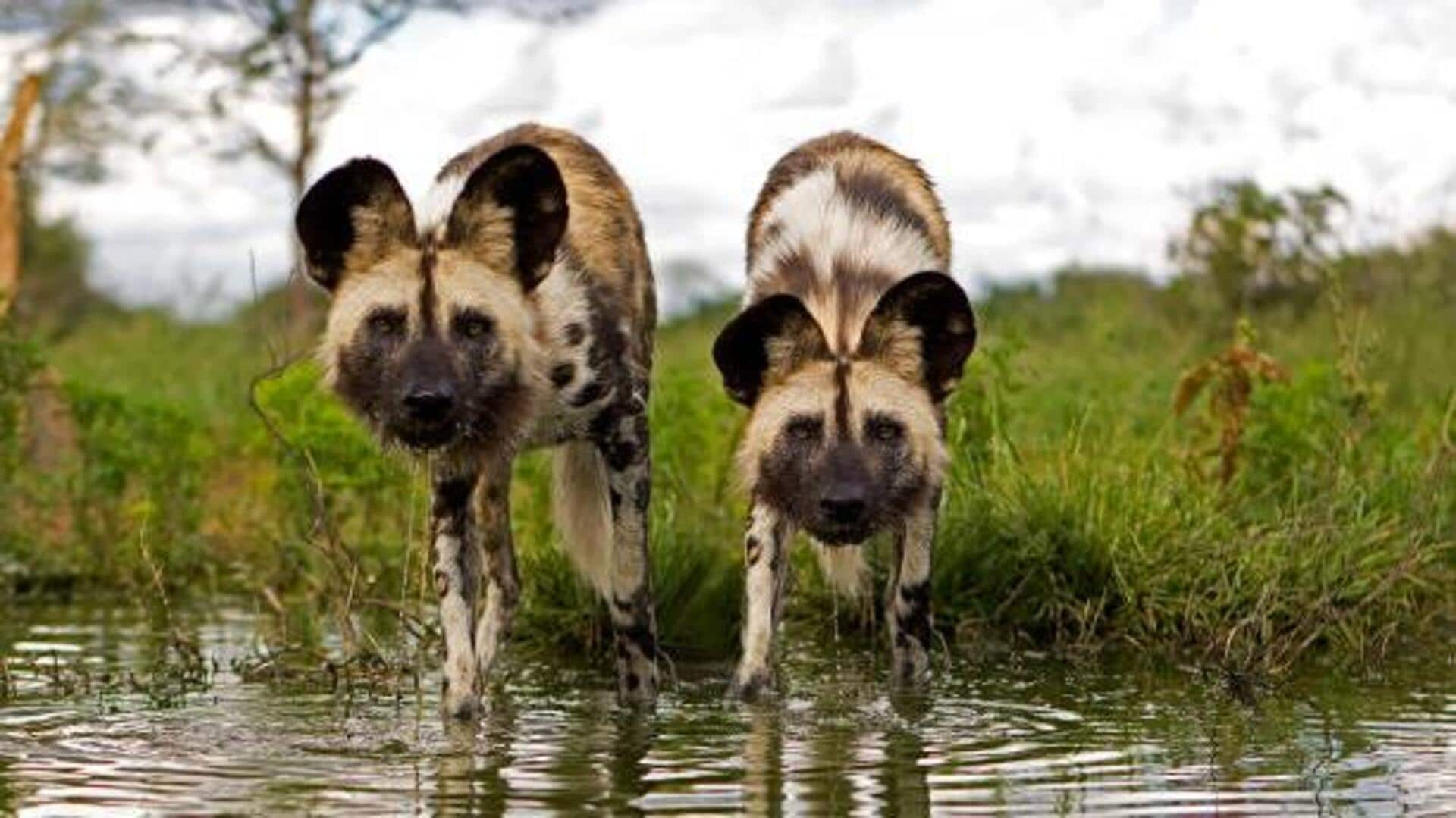
Want to spot African wild dogs? Here's your guide
What's the story
Zimbabwe's wild landscapes hold a wealth of wildlife, but one species, in particular, captures the imagination like no other: the painted wolves, also known as African wild dogs.
Their complex social structures and coordinated hunting strategies are the stuff of legends.
This article takes you on a journey into the world of these fascinating creatures and provides tips on how to ethically witness their daily dramas unfold in the wild.
Social structure
Understanding the social dynamics
Painted wolves exhibit a complex social structure that is crucial for their survival.
A pack usually comprises 10 to 20 individuals, led by an alpha male and female.
In contrast to other predators, painted wolves demonstrate a strong sense of altruism within the pack, sharing meals and even helping sick or injured members.
Witnessing these dynamics in the wild offers a unique insight into their highly cooperative behavior.
Hunting techniques
The art of hunting
The way painted wolves hunt showcases their intelligence and teamwork.
They don't rely on brute strength or blinding speed. Instead, they hunt in packs, using complex tactics that involve communication and endurance.
Seeing them hunt is amazing. You can tell who the leaders are, and the way they can run for miles without stopping is incredible.
Protecting painted wolves
Conservation efforts
Painted wolves are critically endangered with only an estimated 6,600 individuals remaining in the wild. They face threats from habitat loss, human-wildlife conflict, and diseases such as rabies transmitted from domestic dogs.
Conservation efforts in Zimbabwe, such as anti-poaching patrols and community education programs, are crucial for promoting coexistence between humans and painted wolves.
By supporting these initiatives, you can help ensure the survival of this amazing species.
Best locations
Where to observe them
Hwange National Park, Zimbabwe's largest game reserve, offers a unique opportunity to witness painted wolves in their natural habitat.
Their conservation programs ensure that guided tours adhere to strict wildlife boundaries while offering visitors a glimpse into the fascinating world of painted wolves.
Mana Pools National Park also offers sightings of these elusive creatures during guided walks or adventurous canoe safaris.
Ethical practices
Responsible wildlife tourism tips
When viewing painted wolves in the wild, it's crucial to maintain a safe and respectful distance to prevent causing them stress or disrupting their natural behaviors.
Always follow the rules set by the guides or conservationists on site.
Plus, contributing to local conservation initiatives, either through donations or volunteering, is key to preserving the opportunity for future generations to experience these amazing animals in their natural environment.